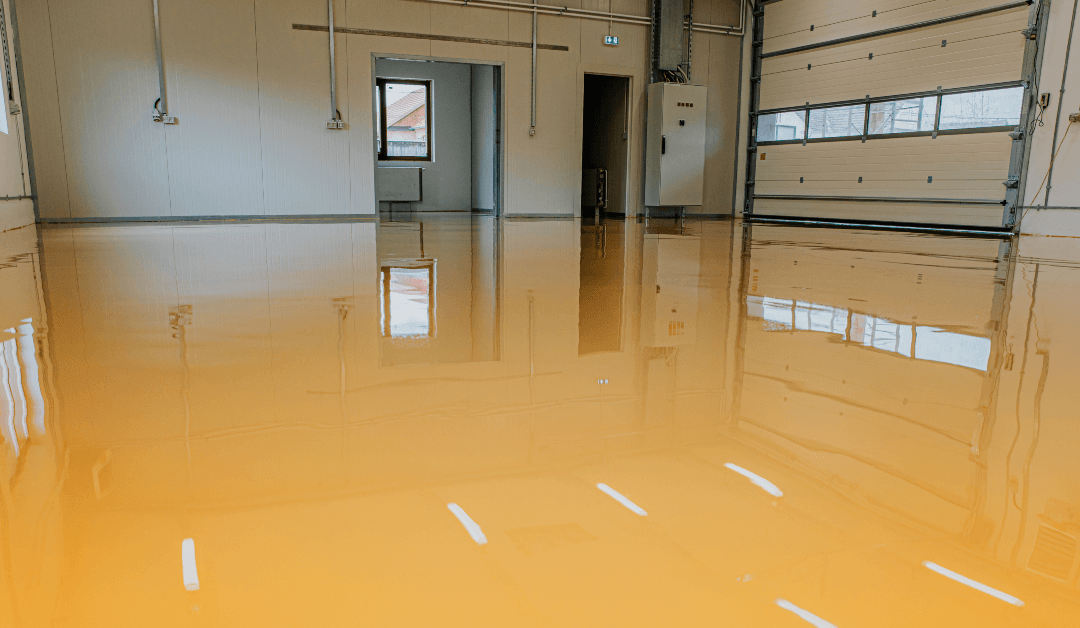Epoxy and polyurethane are floor coatings commonly used in commercial and industrial settings. Both are durable and resistant to wear and tear but differ in their properties and applications. If you are questioning what product suits your flooring needs, please reach out to AmeriCote, and we can help guide you to making the best choice for your floor. When our clients install either of these floorings, it is important to thoroughly prepare the space, ensuring that the concrete floor is dry, clean, and clear of any dust or debris. The cure time of polyurethane and epoxy floorings will vary depending on the product and application.
This article will discuss in detail epoxy vs. polyurethane for industrial flooring.
What is Epoxy Flooring?
Industrial Epoxy flooring is a coating made from resin and hardener. It is typically applied in thin layers and cured to form a hard, durable surface resistant to stains, chemicals, and wear. Our epoxy floors are commonly used on concrete floors in garages, warehouse flooring, and other industrial settings where a durable, easy-to-clean surface is needed. It can also be used in residential settings, such as basements and kitchens.
What is Polyurethane Flooring?
Polyurethane flooring is a coating made from a mixture of polyurethane resin and a hardener. It is applied similarly to epoxy flooring and cured to form a hard, durable surface. Polyurethane flooring is known for its excellent resistance to abrasion, chemicals, and UV light. It is often used in high-traffic areas and environments where the floor may be exposed to harsh chemicals or UV light. Polyurethane flooring can be applied to new and existing floors. It is available in various colors and styles and can be customized to fit the specific needs and design preferences of each homeowner or business owner.
The Difference Between Epoxy and Polyurethane Flooring
Both epoxy and polyurethane flooring are durable and resistant to wear and tear, but there are some differences including the following;
- When it comes to hardness, epoxies are much denser, but polyurethane is more scratch-resistant. Polyurethanes do not exemplify the self-leveling properties that epoxies do when applied to these surfaces.
- Epoxy flooring is thicker and maintain durability longer, while polyurethane flooring is more resistant to chemicals and UV light.
- A polyurethane garage floor is also more flexible, making it more suitable for use in areas where the floor may be subject to movement or vibration.
- Polyurethane can be applied to concrete when the surface is prepared properly
The choice between epoxy industrial floor coatings and polyurethane flooring will depend on your project’s specific needs and requirements. Both types of flooring have their strengths and can be effective in different situations. It is essential to consider the particular characteristics of each type of flooring and choose the one that best meets your needs.
For further assistance, get in touch with us today.

